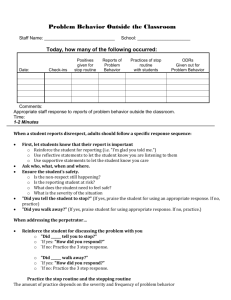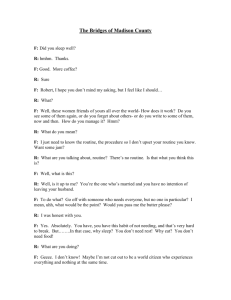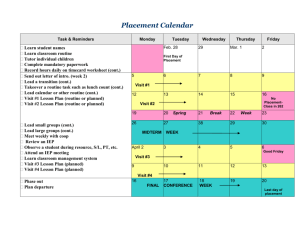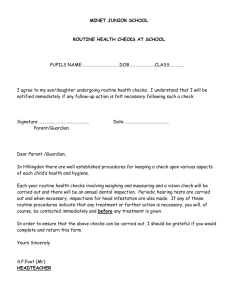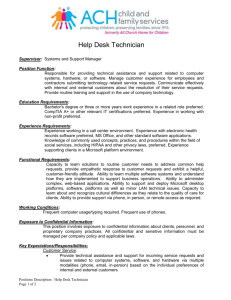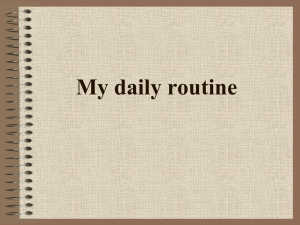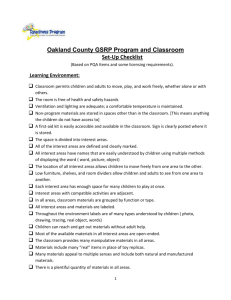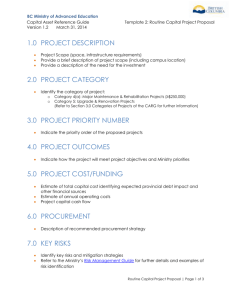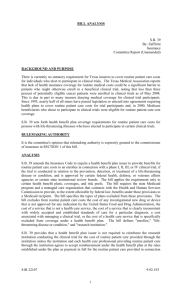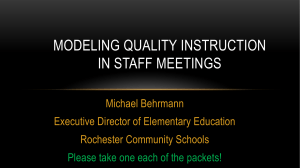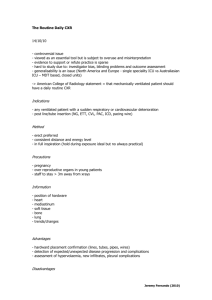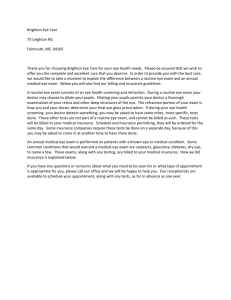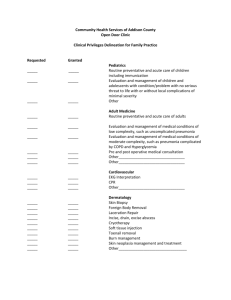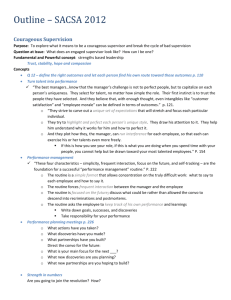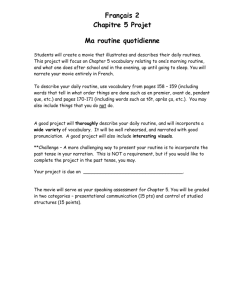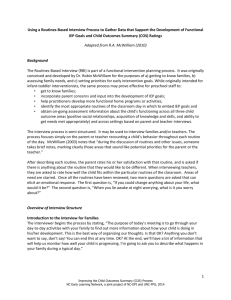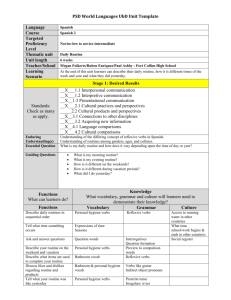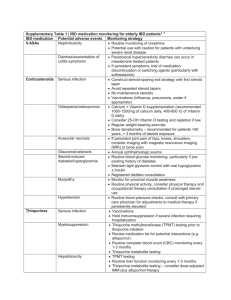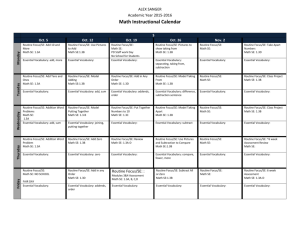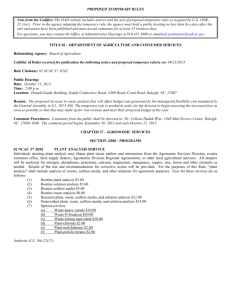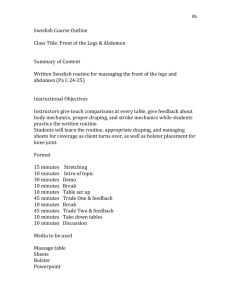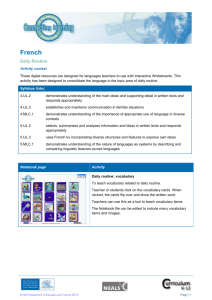Common Routines-Based Interview (RBI) Questions The purpose of
advertisement
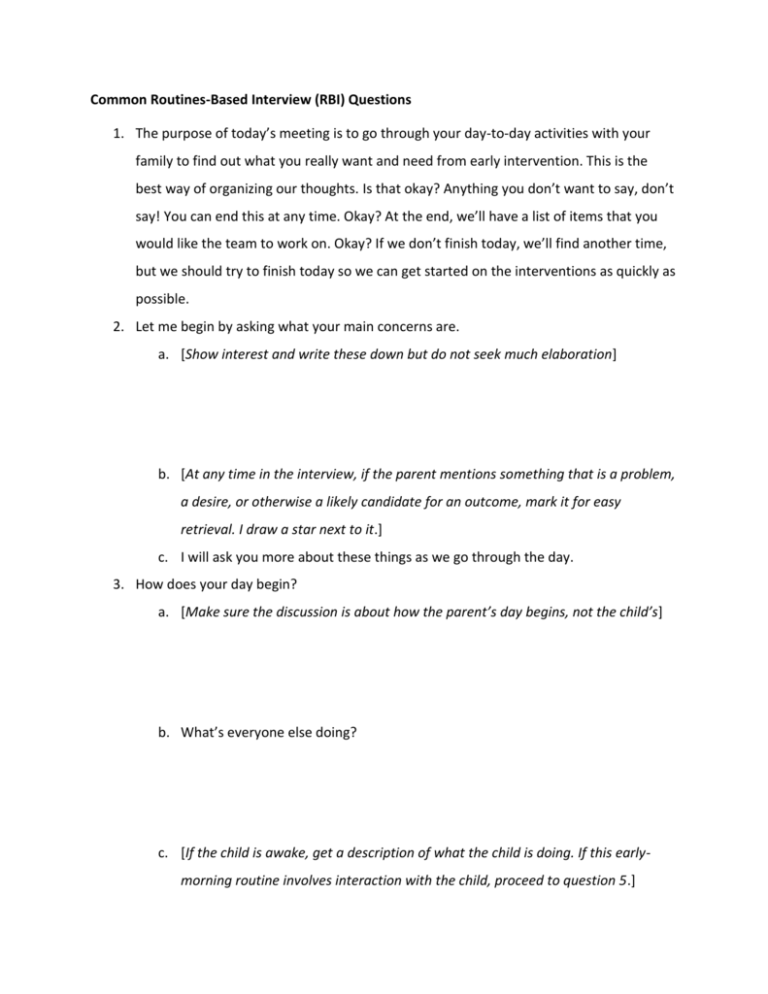
Common Routines-Based Interview (RBI) Questions 1. The purpose of today’s meeting is to go through your day-to-day activities with your family to find out what you really want and need from early intervention. This is the best way of organizing our thoughts. Is that okay? Anything you don’t want to say, don’t say! You can end this at any time. Okay? At the end, we’ll have a list of items that you would like the team to work on. Okay? If we don’t finish today, we’ll find another time, but we should try to finish today so we can get started on the interventions as quickly as possible. 2. Let me begin by asking what your main concerns are. a. [Show interest and write these down but do not seek much elaboration] b. [At any time in the interview, if the parent mentions something that is a problem, a desire, or otherwise a likely candidate for an outcome, mark it for easy retrieval. I draw a star next to it.] c. I will ask you more about these things as we go through the day. 3. How does your day begin? a. [Make sure the discussion is about how the parent’s day begins, not the child’s] b. What’s everyone else doing? c. [If the child is awake, get a description of what the child is doing. If this earlymorning routine involves interaction with the child, proceed to question 5.] d. [Regardless of whether the child is awake] On a scale of 1-5, how much do you like this beginning of your day? 4. What happens next? a. [This is the transition question throughout the interview. It allows the parent to describe his or her day, rather than having the interviewer assume what the family does, including the order in which they do it.] b. Let’s back up and deal just with your child’s getting up. c. [Commonly, parents have to be slowed down, because they don’t yet know the level of detailed desired. These early-morning routines are the time to show the parent how much information to give in each routine.] 5. What is everyone else doing? a. [Try to find out whether the child is highly engaged, just following the routine, or not participating.] 6. What is your child doing? a. [Allow a response to the open-ended question and then, if necessary, follow up with these next questions.] b. How is your child participating in this activity? i. [Try to find out whether the child is highly engaged, just following routine, or not participating.] c. How much does your child do for him- or herself? i. [Ask developmentally appropriate questions about the child’s independence. You have to know your child development!] d. How is your child interacting [use simpler terms if necessary] with others at this time? i. [Ask developmentally appropriate follow-up questions about communication, self-regulation, cooperation, and social skills. Generally, ask about getting along with others during the routine.] 7. On a scale of 1-5, how well do you feel this time of the day goes for you? a. [This is a variation on the satisfaction question] 8. [Repeat questions 5-7 for each routine] a. [If necessary] Let’s skip to dinner preparation time [or another possible later routine]. i. [With some interviews, it is necessary to move the conversation along.] 9. [After the last routine] Is there another typical event or activity we should discuss? a. [If time, ask about weekends] 10. Now let me ask you a couple of general questions. When you lie awake at night, worrying, what do you worry about? a. [Write down the answer, marking it as a concern, if appropriate.] 11. If there’s anything you’d like to change about your life, what is it? a. [Write down the answer, marking it as a concern, if appropriate.] 12. Now I’ll go back through and remind you of the concerns you mentioned. a. [Review the list of marked items so the parent can see them. The parent is looking at the notes with the interviewer. This is symbolically important as well as pragmatic.] b. [Parents will sometimes elaborate, but this is not encouraged at this late stage.] 13. [Setting the pages down] Now let me hear what you would like to be on the actual list of things to work on. a. [Write down what the parent chooses. If necessary, refer to the marked items.] b. [If the parent mentions a skill with no reference to the context or function (e.g., “I just want him to be able to talk”), ask what skill that would be helpful for, and then, if necessary, during which times of the day that skill would be helpful.] c. [If the parent mentions a service with no reference to the function (e.g., “I just want him to have physical therapy”), ask what skill that would be helpful for, and then, if necessary, during which times of the day the skill would be helpful.] 14. [Once 6-12 priorities have been listed an no more seem to be forthcoming] Now let’s put this list into order of importance. Which one is the more important one to you? a. [Put a 1 next to that priority] Which is next? [Continue through the whole list] 15. This is a great list of things to work on. I’ll consult with other team members and the next time we meet we’ll write down their ideas and your ideas for the strategies to begin addressing these. At that time, we’ll decide what services are needed to get these priorities or “outcomes” addressed. McWilliam, R. A. (2010). Routine-based early intervention: Supporting young children and their families. Baltimore: Paul H. Brookes Publishing Company.
